Urban legends have persisted worldwide, with many tall tales rooted in folklore passed down through oral tradition. Some are supernatural stories based on myth, while modern iterations often go viral through social media or chain emails that promise doom or good fortune. Myths like Bloody Mary transcend borders, as I remember both my brother and me leaving the bathroom door open a crack in our childhood home in Saudi Arabia. Each place has its own set of urban legends, and New York, one of the original 13 colonies, is no exception. The city’s history is steeped in local folklore, including the lost treasure of Bedloe’s Island (now Liberty Island) and the ghost ship of the Hudson River (read more here). I recall anxiously looking up when walking past the Empire State Building, fearing a penny might hurtle down and split my skull. Despite their ridiculous nature, most of these myths contain a kernel of truth.
In Episode 5, we explore one of New York’s most famous urban legends: the alligator in the sewer or subway. Upon entering the reliquary lobby, you’re greeted by a stuffed alligator smirking from the roof. Now the origins of this gator are mysterious but know that it pays tribute to the classic myth. Michael Miscione, former Manhattan Borough Historian and longtime friend of the museum, join us as our guest to discuss the origins and validity of this legend. Here are some shots of Michael with Dave Herman, the Reliquary’s founder, and the creature in question.
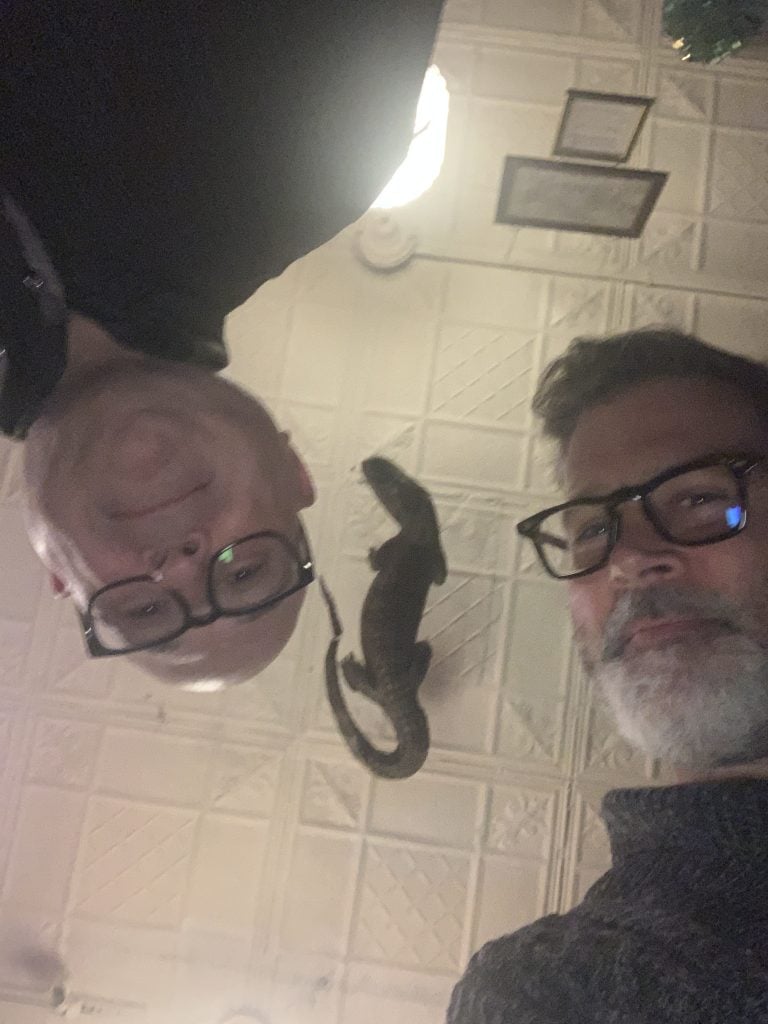
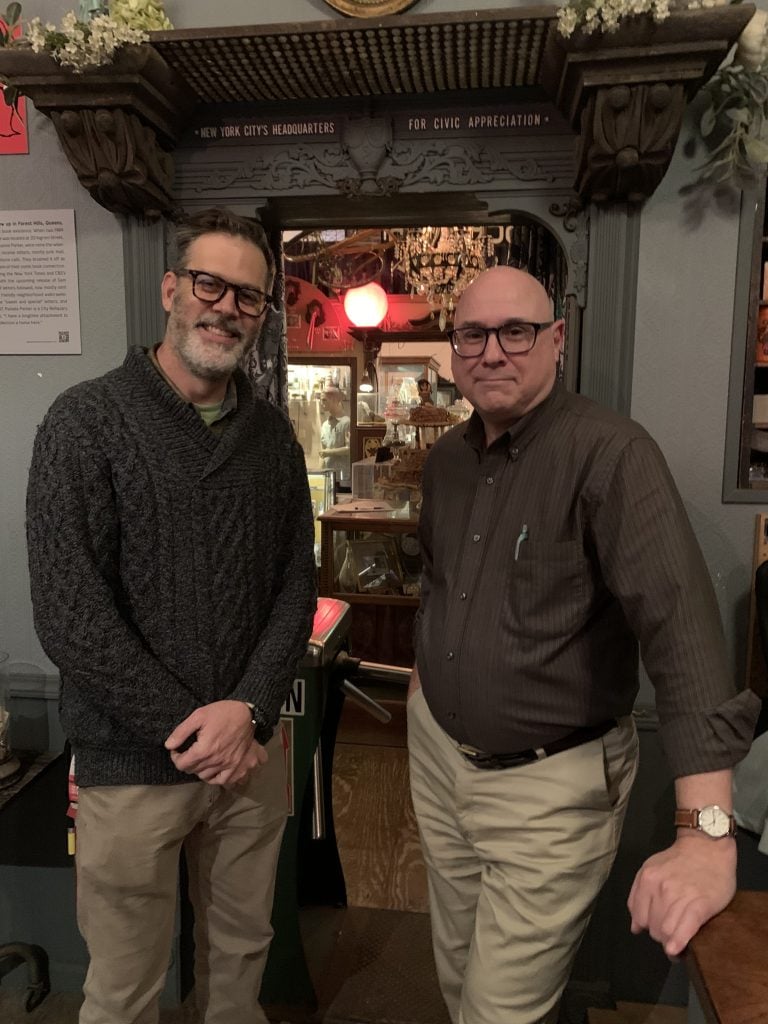
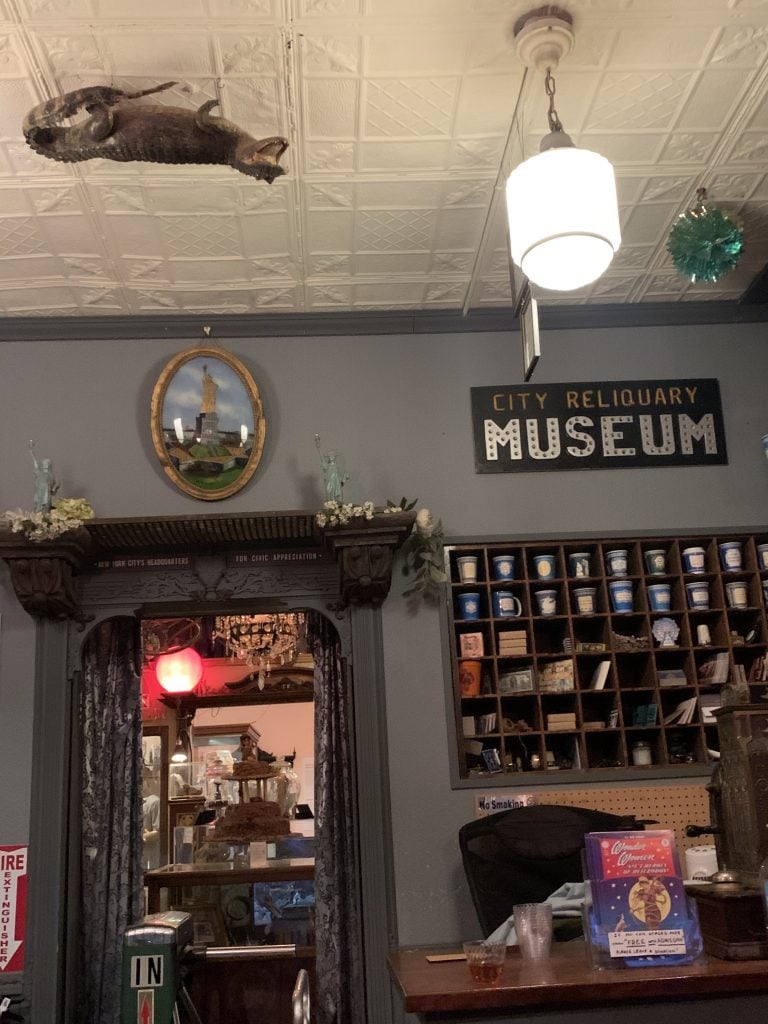
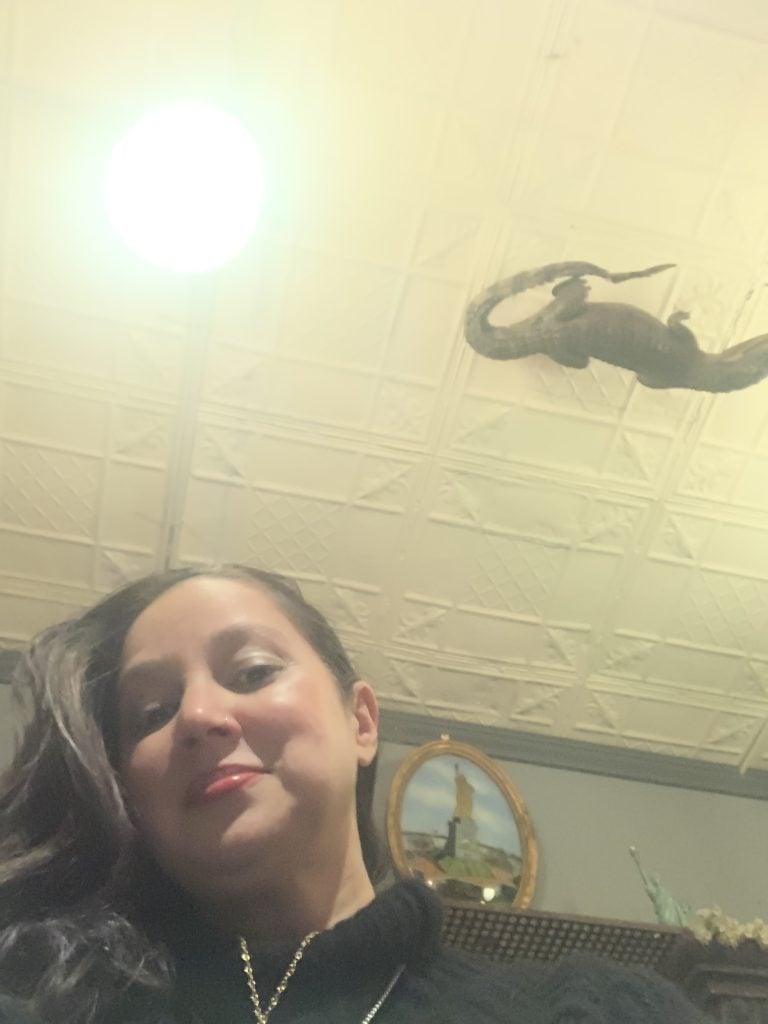
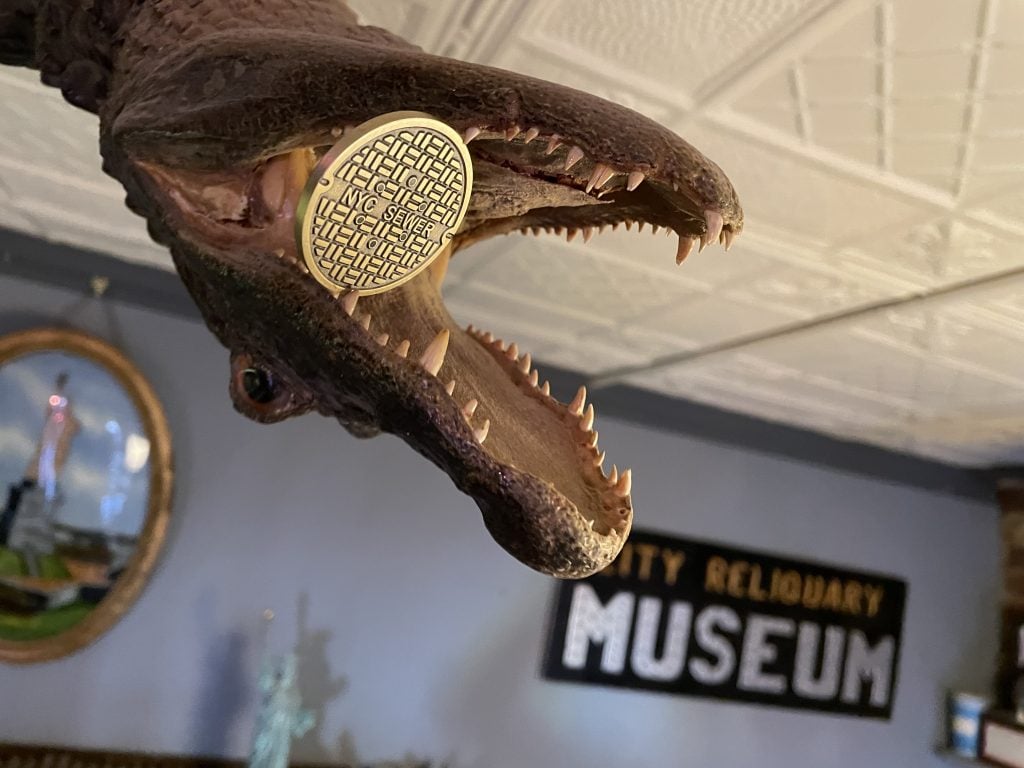
Miscione has been captivated by the alligator in the Subway story since childhood. He and his friends would lose stick balls in gutters forever because retrieving them may result in a face-to-face encounter with a large, semiaquatic reptile from as far away as Florida. Over the years, he has conducted exhaustive research to uncover the myth’s origins and has spoken about it widely in the city. In this episode, we dive into the first reported alligator sightings in the sewers and explore theories on how these crocodilian reptiles definitely not local may have ended up in the Big Apple. Below are some awesome old headlines and images from Michael’s research, which he has kindly shared with us. Many of which are referred to in the episode
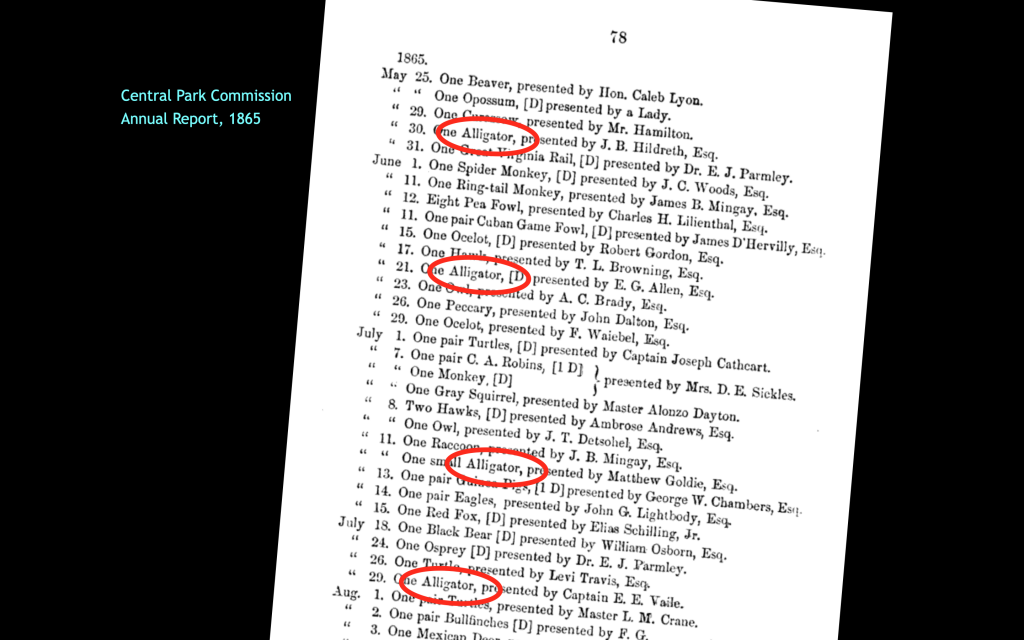
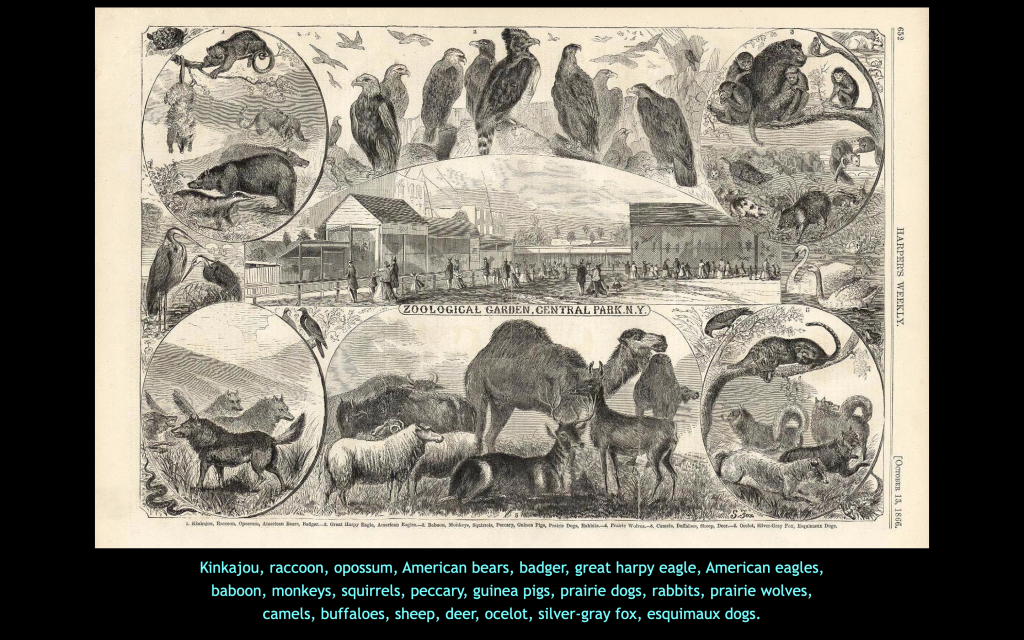
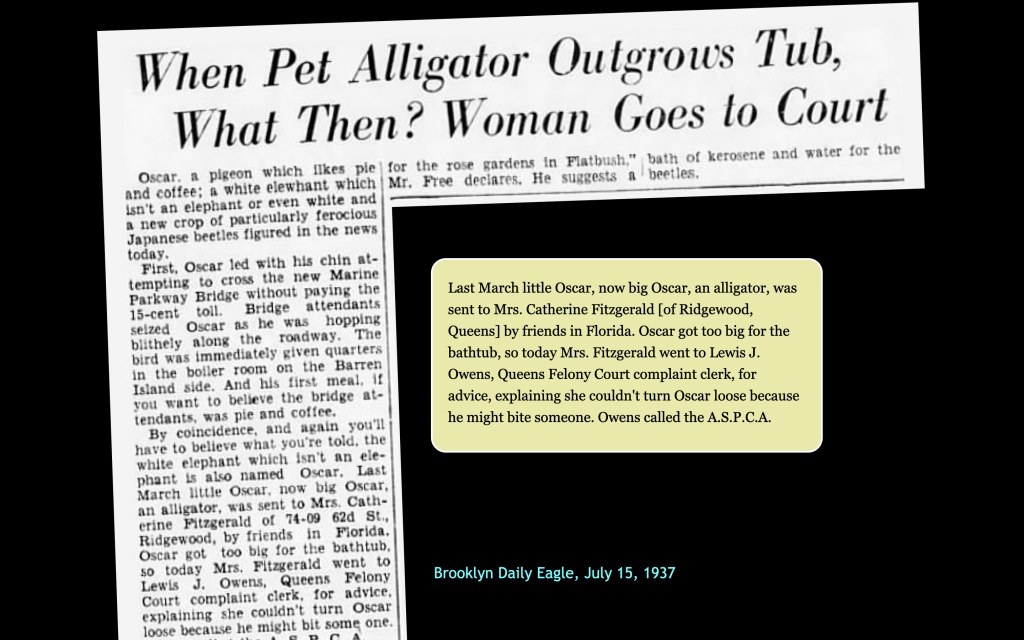
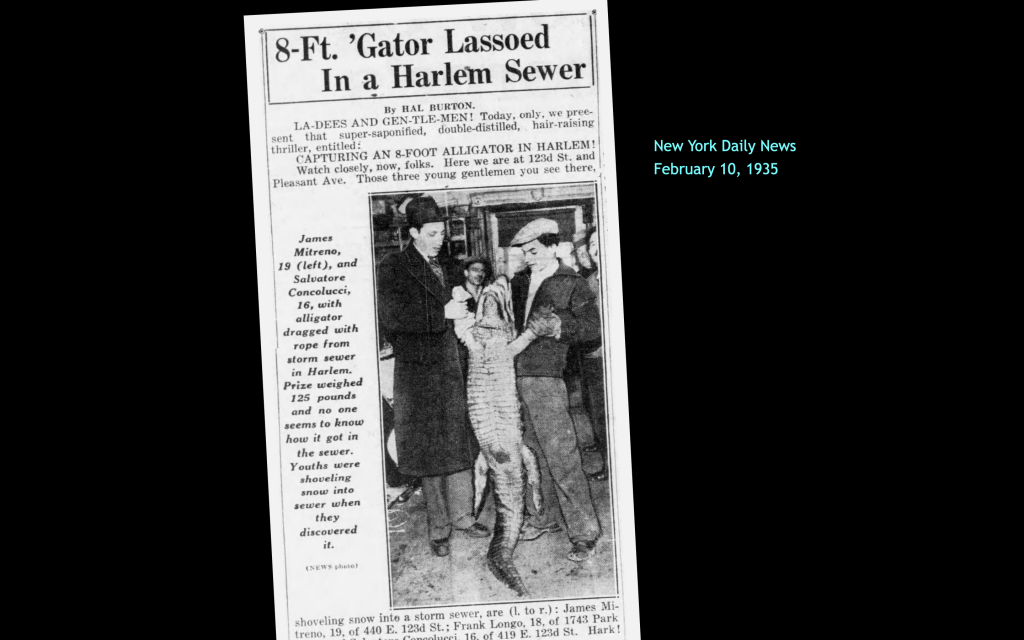
The allure of exotic creatures for New Yorkers persists. Residents have cared for exotic birds, Savannah cats, snakes, and peacocks in their cramped apartments. While special permits are required for certain species, it hasn’t deterred New Yorkers from attempting to tame these wild animals. According to Article 161 of the NYC Health Code, a wild animal is any animal naturally inclined and capable of inflicting harm upon humans. The list includes but is not limited to, lions, tigers, leopards, ocelots, jaguars, pumas, panthers, mountain lions, cheetahs, wild cats, and bears. Who knows which of these creatures might be lurking in the sewers next? Personally, I’d prefer a good old-fashioned New York rat slinking around any day.
Next year don’t forget to celebrate this New York myth with Michael on February 9th, which he has decreed as “Alligator in a Sewer Day.” You can also learn about his other passion, the 1898 consolidation of the five boroughs, at NYC125.org.
PS: You can still send a baby Alligator in the mail today – they just need to be less than 20 inches long! You probably don’t need to look in the back of a magazine though, maybe just google?
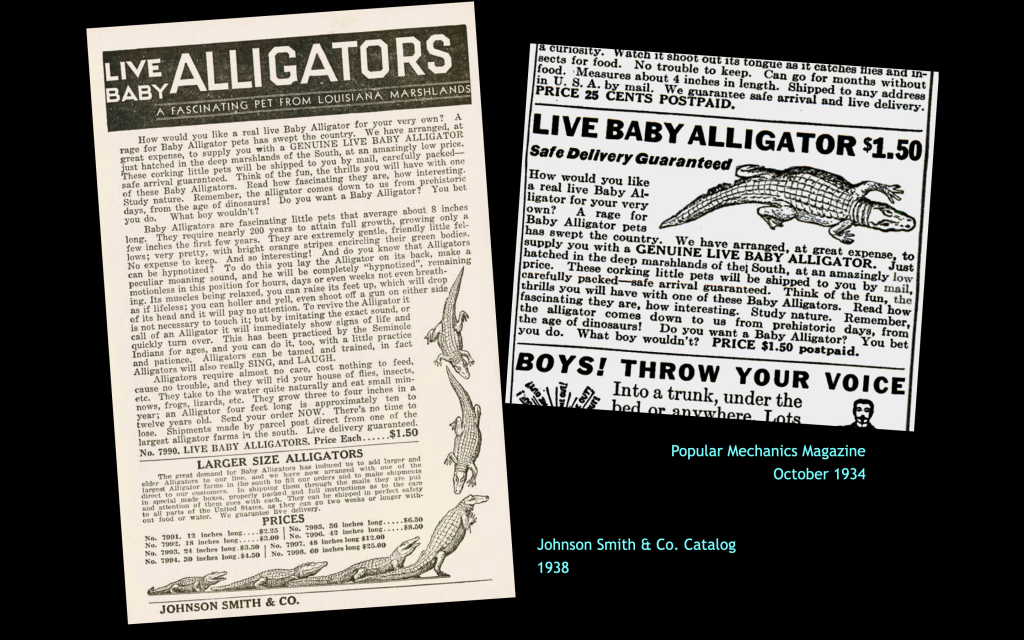
Alligator Ads – Michael Miscione
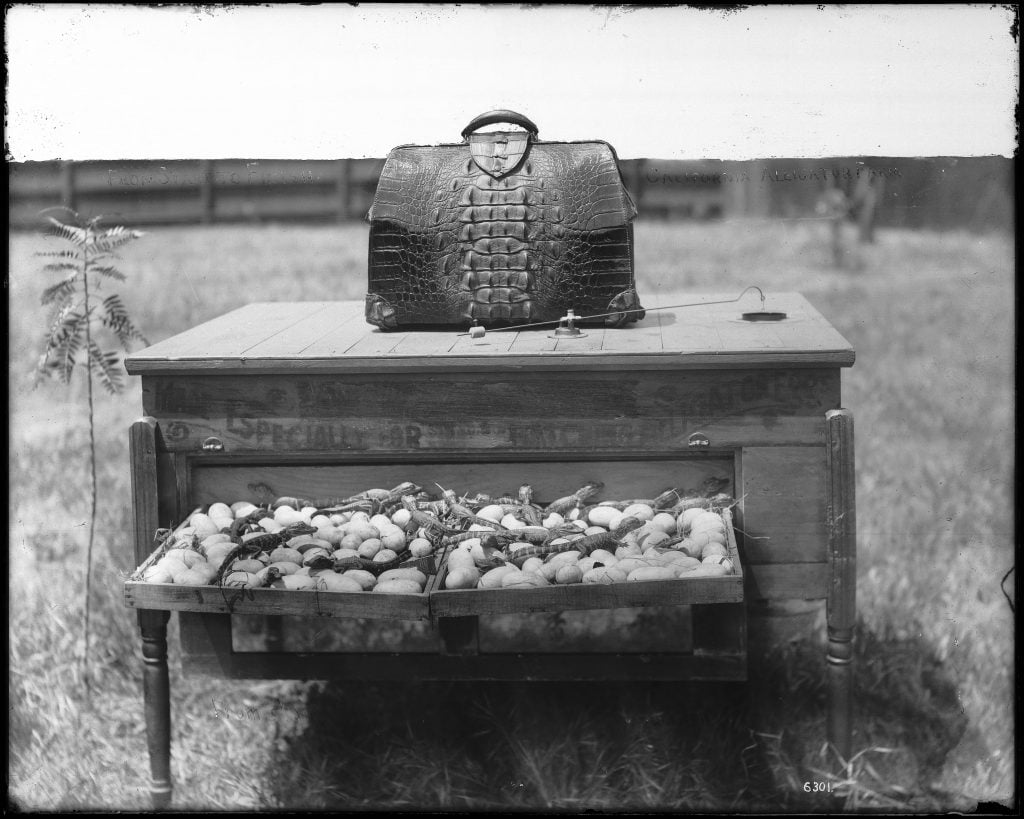
Alligator Incubator Farm circa 1900s (photo California Historical Society Collection)
Post-PS from Jacob Ford: our stuffed alligator being mounted upside-down to the ceiling is our little shoutout to Ferrante Imperato and his Dell’historia Naturale, which also had (at least according to his own woodcut) an alligator belly-up above visitors. His is the first published picture of a wunderkammer, the progenitor of the modern museum. We have a little framed print of it that floats around the museum.
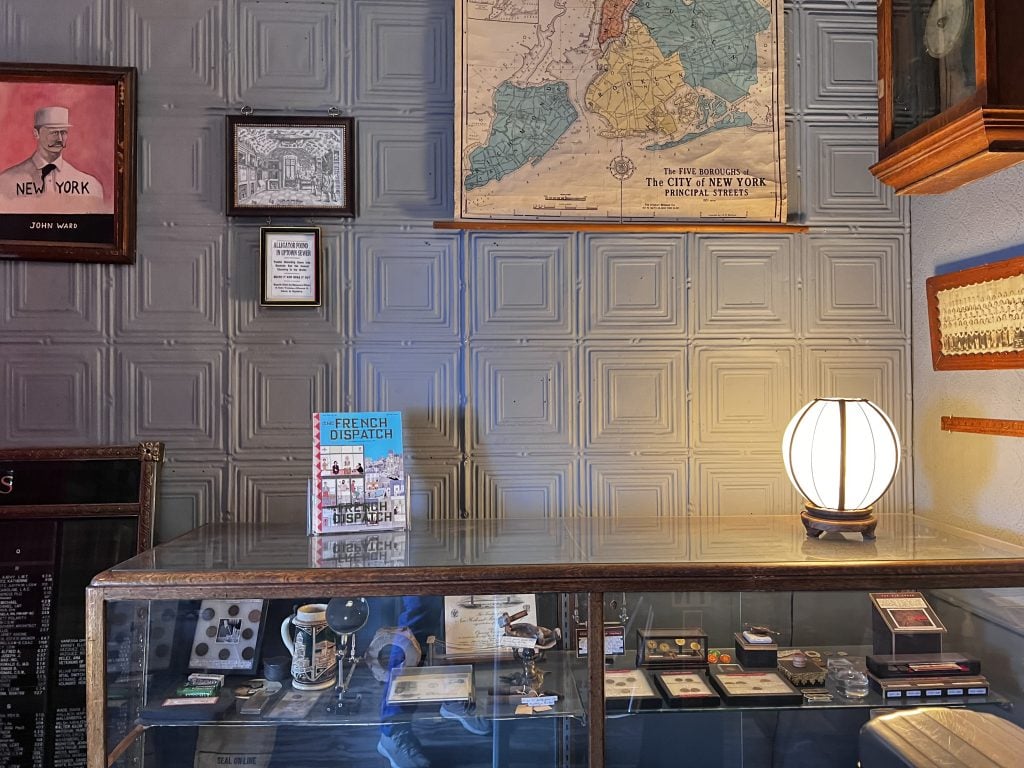
Further Reading & Resources:
- A NYT history of NYC alligators, which seems to get repolished & republished every few years
- Original Gator Article from the New York Times Archive
- Sewer Alligator Fascination from Gothamist
- Urban Legends and why they persist at LiveScience
- Halloween Sadism/Deadly Candy from expert Joel Best’s deep dive